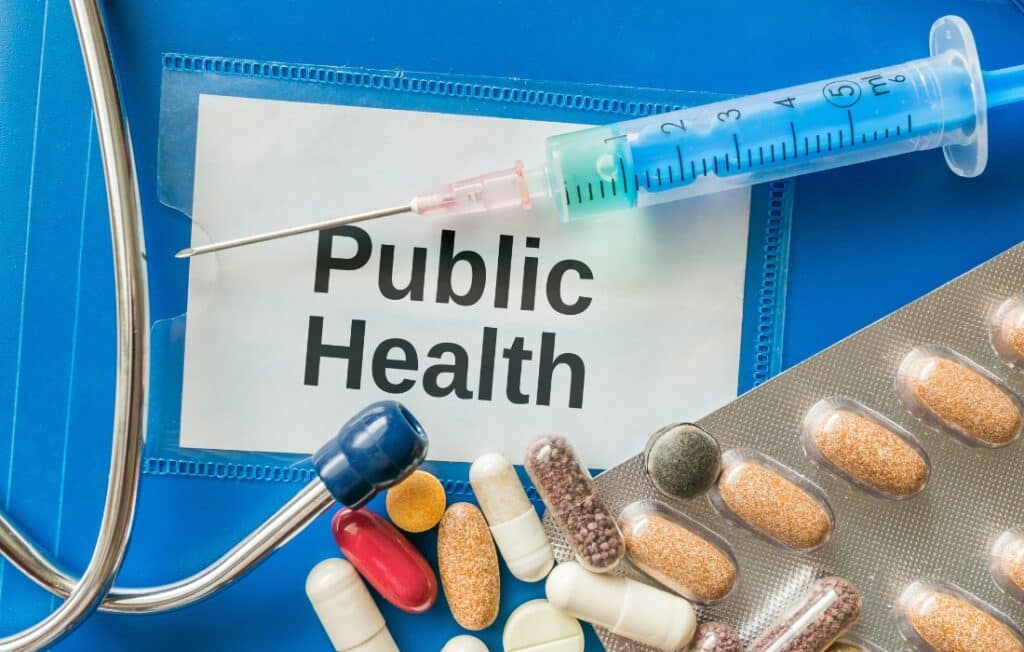San Mateo County regulates medical goods transportation to ensure safety, security, and compliance. A look at the key federal, state, and local agencies that govern the medical courier industry is provided in this article. From understanding crucial compliance aspects to choosing a reliable service, a comprehensive look at this regulatory landscape is provided.
Understanding the Role of Medical Couriers
In the healthcare supply chain, medical couriers transport medical equipment, specimens, documents, and sometimes even organs. They must adhere to strict protocols to ensure the integrity of medical items and comply with health and safety regulations. To grasp the regulations governing their activities, one must understand their role.
| Factors | Description | Regulatory Body | Compliance Measures | Penalties for Non-compliance |
| Time-Sensitive Deliveries | Handling deliveries that are time-sensitive, like organs for transplantation | FDA, Local Health Department | Strict adherence to delivery timings | Fines, Legal action |
| Safety Protocols | Following safety measures for sensitive and hazardous material | OSHA, FDA | Specialized packaging, training | Fines, License revocation |
| Specialized Training | Training to handle biohazardous material, sensitive documents, etc. | State Health Departments, OSHA | Certification courses, periodic training | Fines, Legal action |
| Vehicle Standards | Use of specialized vehicles for transport | DOT, Local ordinances | Vehicle inspection and approval | Fines, Legal action |
| Documentation | Proper documentation of items being couriered | FDA, State Health Departments | Use of tracking systems, logs | Fines, License revocation |
Federal Regulations for Medical Couriers

For medical couriers, federal laws and agencies provide a foundational regulatory framework, including the Food and Drug Administration (FDA). Compliance with federal guidelines is critical for interstate operations and the transport of controlled substances. These guidelines set the national standard that state and local jurisdictions often expand upon.
- FDA Oversight: The FDA governs the transportation of pharmaceuticals and medical devices.
- Controlled Substances: Federal laws dictate how controlled substances must be securely transported.
- Interstate Commerce: Medical couriers operating across state lines must adhere to federal regulations.
California State Regulations on Medical Couriers

A medical courier’s license is one of California’s many legal requirements regarding medical couriers. These state-level directives often align with federal laws but may include additional stipulations. Understanding these can help medical couriers operate legally and efficiently within the state.
- State Licensure: California requires medical couriers in San Mateo to obtain specific licenses for operation.
- Additional Protocols: State regulations may include additional safety and handling protocols beyond federal requirements.
- Local Collaboration: Often, state agencies collaborate with local governments to ensure regulatory compliance.
San Mateo County Local Ordinances
San Mateo County may have local rules and regulations affecting medical courier operations. These can range from zoning laws to vehicle specifications. Local ordinances are essential for couriers who operate primarily within the county.
- Zoning Laws: Certain areas may be designated for medical courier operations.
- Vehicle Specifications: Local ordinances may stipulate vehicle requirements for medical transport.
- Permits and Fees: Operating in San Mateo County might require specific permits and fees.
Department of Public Health’s Role

Medical courier services are overseen and regulated by the Department of Public Health in San Mateo County. Inspections are conducted, permits are issued, and health regulations are observed. Their jurisdiction complements federal and state regulations.
- Health Inspections: Regular inspections are conducted to ensure compliance with health codes.
- Permit Issuance: The department is responsible for issuing permits to qualified medical couriers.
- Regulatory Guidelines: The Department of Public Health sets local health guidelines that couriers must follow.
HIPAA and Medical Couriers
HIPAA requires medical couriers to safeguard patient information as part of its security requirements. Serious penalties can be imposed if compliance needs to be met. Understanding HIPAA compliance is vital for couriers handling patient records or sensitive information.
| HIPAA Aspect | Description | Compliance Measures | Penalties for Non-compliance |
| Data Protection | Safeguarding patient data during transit | Data encryption, secure transit | Fines, Legal action |
| Documentation | Keeping records of data transfers | Detailed logging and timestamping | Fines, Legal action |
| Employee Training | Ensuring staff understand HIPAA requirements | Regular training and updates | Fines, Legal action |
| Access Controls | Limiting who can access patient data | Use of secure passwords, biometrics | Fines, Legal action |
| Data Integrity | Making sure data is not altered or destroyed | Regular backups, checksums | Fines, Legal action |
| Audit Trails | Maintaining records of who accessed what data | Detailed logs and surveillance | Fines, Legal action |
Types of Medical Shipments
Blood samples and medical records are among the items handled by medical couriers. Different types of shipments often come with specific regulatory guidelines. Couriers must be aware of these to ensure each item is handled correctly.
| Type of Shipment | Description | Regulatory Body | Compliance Measures |
| Blood and Tissue Samples | Biological samples for testing or transplantation | FDA, CDC | Specialized containers, temperature control |
| Medical Records | Documents containing patient information | HHS (HIPAA) | Secure packaging, documentation |
| Pharmaceuticals | Drugs and medication | FDA, DEA | Special licenses, secure storage |
| Medical Equipment | Devices like ventilators, surgical tools | FDA | Safe packaging, documentation |
| Laboratory Reagents | Chemicals used in medical testing | EPA, OSHA | Specialized handling and storage |
| X-rays and MRIs | Medical imaging data | HHS (HIPAA), FDA | Secure packaging, documentation |
Compliance Checks and Audits
Periodic checks and audits are part and parcel of medical courier operations. Compliance with federal, state, and local regulations is ensured through these assessments. Audits can be conducted without notice and may include reviewing vehicle conditions, documentation, and even staff qualifications.
| Aspect Checked | Description | Oversight Body | Compliance Measures | Penalties for Non-compliance |
| Documentation | Records of shipments and data transfers | State Health Departments, HHS | Detailed logs, digital tracking | Fines, Legal action |
| Vehicle Standards | Condition of vehicles used | DOT, Local Traffic Authorities | Regular vehicle inspections | Fines, Vehicle impoundment |
| Staff Qualifications | Credentials and training of employees | State Health Departments, OSHA | Verification of credentials, ongoing training | Fines, Legal action |
| Storage Conditions | How items are stored during transit | FDA, CDC | Temperature logs, secure storage | Fines, Legal action |
| Data Security | Protection of sensitive information | HHS (HIPAA) | Data encryption, secure transit | Fines, Legal action |
| Waste Disposal | Handling of waste materials | EPA, Local Environmental Health | Proper disposal protocols, documentation | Fines, Legal action |
Penalties for Non-Compliance
Non-compliance with regulations can result in various penalties, including fines, license revocation, and legal repercussions. Medical couriers must diligently follow all regulatory requirements to avoid such consequences. Penalties may vary depending on the severity of the violation and the regulating authority.
| Type of Penalty | Description | Severity | Applicable Regulations | Frequency of Occurrence | Repercussions for Business |
| Fines | Monetary penalties | Low to High | All regulatory bodies | Common | Financial strain, potential loss of business |
| License Revocation | Loss of operating license | High | State Health Departments, Local authorities | Less common but severe | Shutdown of operations |
| Legal Action | Lawsuits and legal proceedings | High | All regulatory bodies | Rare but highly impactful | Loss of reputation, potential business closure |
| Cease and Desist Orders | Orders to stop certain activities | Moderate | Local authorities, State agencies | Uncommon | Temporary halt of operations, financial losses |
| Vehicle Impoundment | Seizure of transport vehicles | Moderate | DOT, Local Traffic Authorities | Rare | Disruption of services, additional costs |
| Imprisonment | Jail term for severe violations | Very High | DEA, FDA, HHS | Extremely rare but severe | Loss of reputation, potential business closure |
The regulatory framework for medical couriers in San Mateo County involves multiple layers of oversight, from federal to local agencies. These measures guarantee that medical supplies reach their destinations safely and securely. Understanding these regulations is essential for healthcare professionals and offers valuable insights into the robust systems to protect public health.
Ready to experience top-tier medical courier service in San Mateo County? Don’t hesitate! Contact the team to book a consultation with the experts at Aceso Courier. Elevate your healthcare logistics now!
Frequently Asked Questions
What Makes Medical Couriers Different from Regular Couriers?
Medical couriers specialize in transporting sensitive healthcare materials, ensuring they reach their destination safely and on time. They operate under strict regulations and are trained to handle various medical substances.
What Federal Agencies Regulate Medical Couriers?
Federal agencies like the FDA (Food and Drug Administration) and DOT (Department of Transportation) are instrumental in setting guidelines for medical couriers’ safe and efficient operation.
What State Licenses are Required for Medical Couriers in California?
State licenses may vary but often include certifications for handling sensitive materials and additional vehicle inspections. Check with state agencies for the most current requirements.
Are There Local Laws for Medical Couriers in San Mateo County?
Yes, San Mateo County has local laws and ordinances, including zoning restrictions and business licenses, which medical couriers must comply with.
How are Compliance Checks Done?
Compliance checks are usually conducted through periodic audits and inspections by the relevant regulatory agencies. These procedures meet all safety standards and operational requirements.
How Do I Choose a Compliant Medical Courier Service?
Look for certifications, inquire about their safety protocols, and consider their experience in the medical field. It is also possible to determine the reliability of a courier by reviewing the testimonials left by customers.









